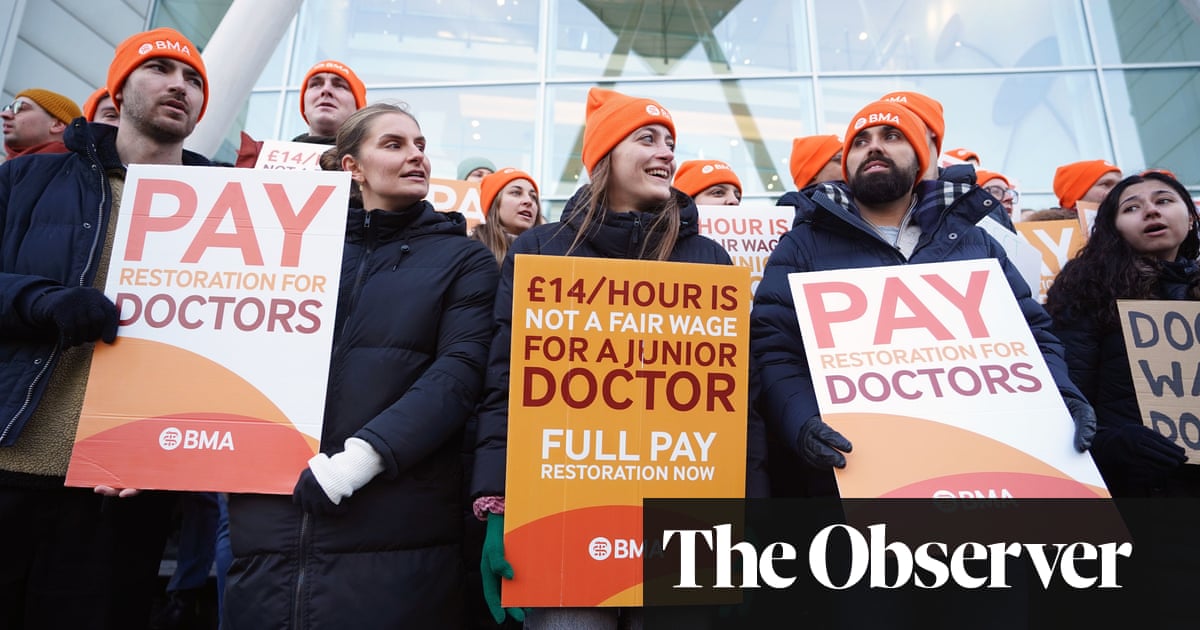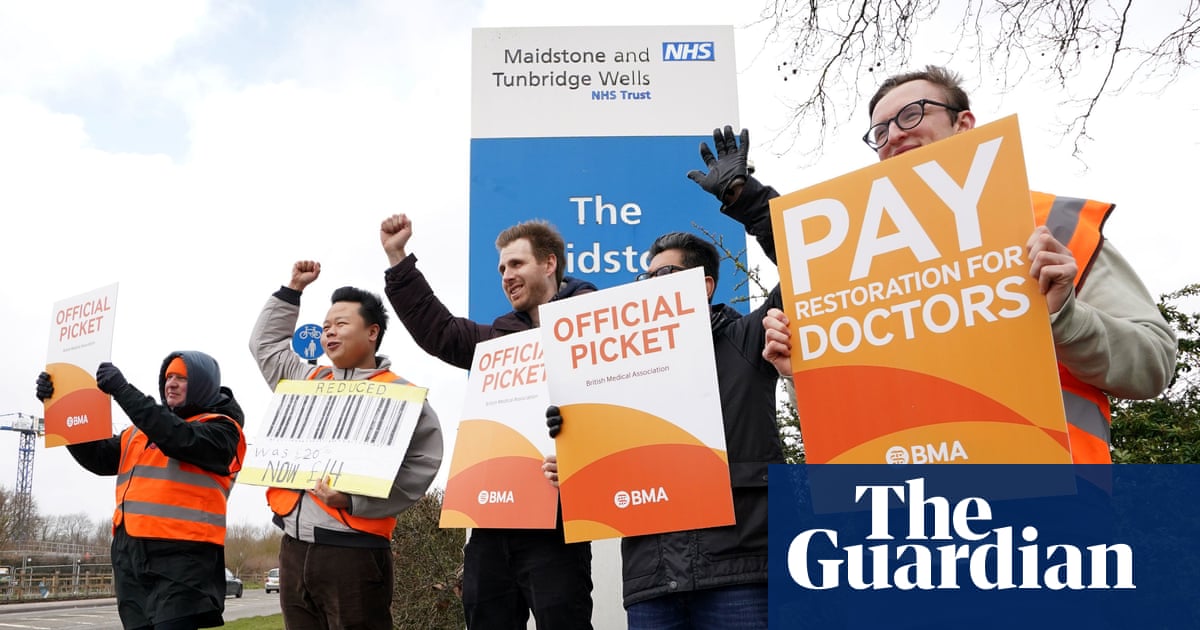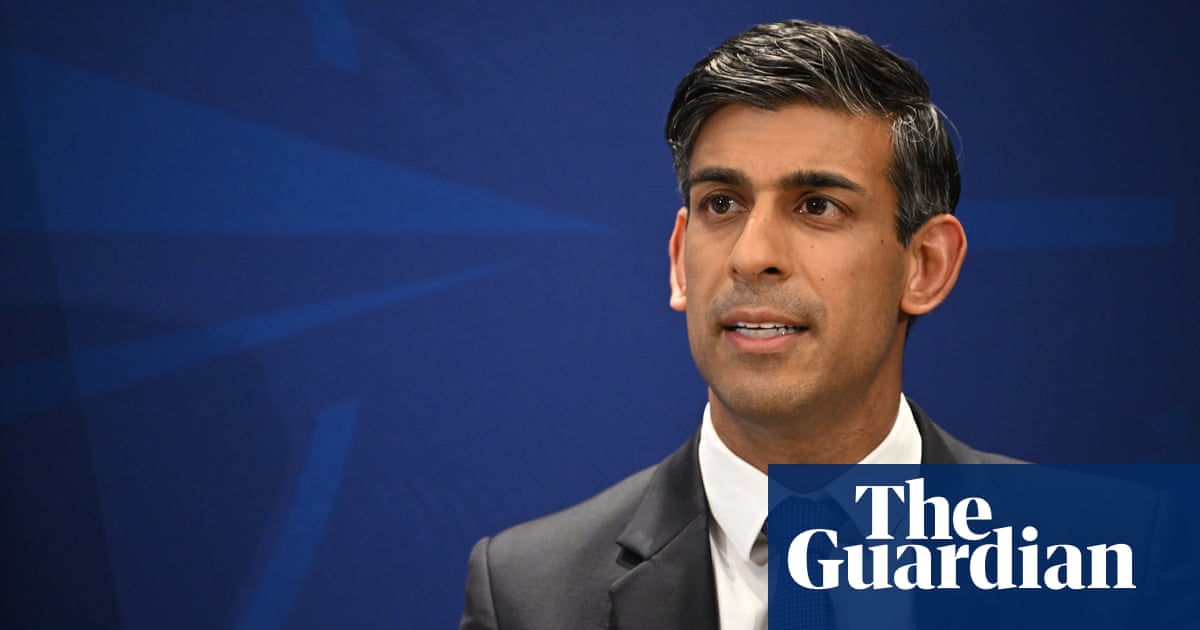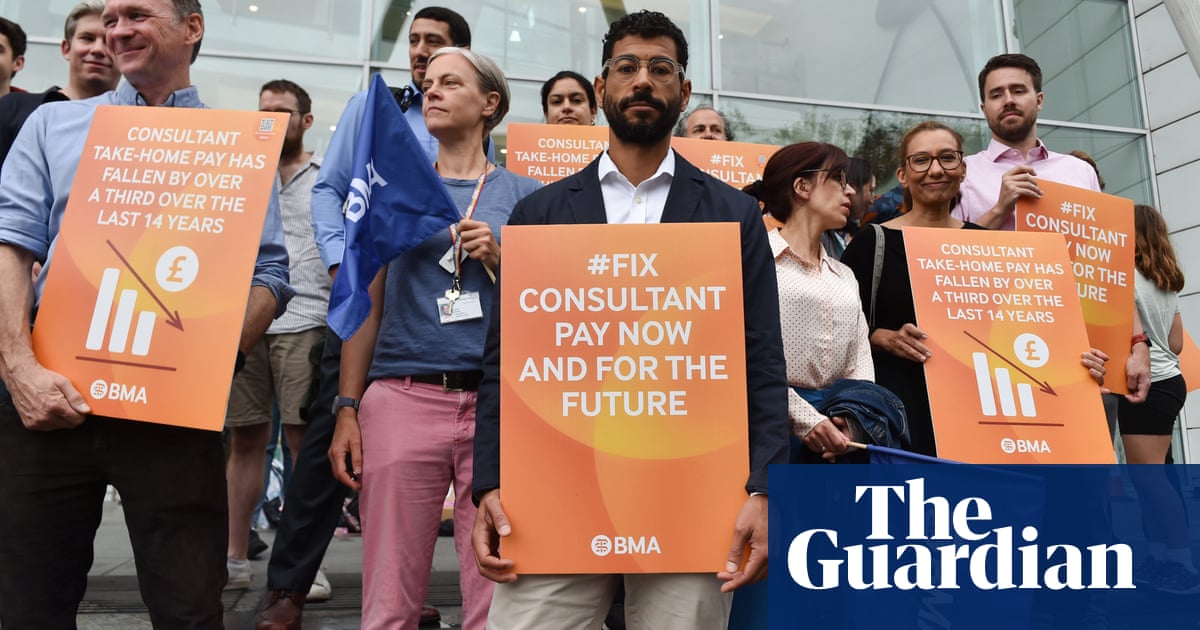
One of Rishi Sunak’s key targets for the NHS – to eliminate waits of longer than 65 weeks for operations and other procedures by March – is likely to be missed because of strike action, health bosses warned this weekend.
The health service faces the longest national strike in its history when junior doctors walk out for six days from 7am on Wednesday. One NHS trust leader said he expected about a third of operations to be cancelled at his trust.
Strike action by consultants, junior doctors and nurses over the last year has hampered the work to reduce the waiting list for consultant-led elective care, which stood at more than 7.7 million at the end of October.
The British Medical Association (BMA) warned this weekend of the prospect of further strike action in 2024 by junior doctors unless the government made a credible offer.
Matthew Taylor, chief executive of the NHS Confederation, the membership organisation for the healthcare system in England, Wales and Northern Ireland, said many trusts would be in a precarious position because of the strike.
“Many trusts will have thin rotas and will be in a highly vulnerable position,” he said. “A lot of the NHS will be skating on very thin ice because this is one of the most demanding weeks of the year, if not the most demanding.”
He said the cumulative impact of industrial action meant it was unlikely the target to eliminate 65-week waits for elective treatment by March 2024 would be achieved. “It was always a really hard target and if we had not had industrial action, we would have got pretty close,” he said. “With industrial action, it looks like it’s beyond our reach.”
Taylor said that the NHS was making progress on the waiting list for treatments with a range of initiatives, including new surgical hubs providing more operating theatres and beds.
When Sunak pledged to cut hospital waiting lists last January – one of five key priorities for a general election – there were 7.21m consultant-led treatments on the waiting list. There are now about 500,000 more treatments and appointments on the list, according to the most recent figures, compared to January.
Recent NHS hospital performance documents submitted to trust boards reveal how health bosses are struggling to meet the target. In October, 107,433 cases were waiting more than 65 weeks.
The board of the Norfolk and Norwich University hospitals NHS foundation trust was told in papers submitted in November that it was “off track” for the March target. The papers state: “Industrial action has significantly reduced the run rate of 65-week activity before, during and after periods [of industrial action]. The original forecast of 900 patients waiting over 65 weeks on 31 March 2024 is currently forecast to be circa 2,300.”
The board at University Hospital Bristol and Weston NHS foundation trust was also told in a report this month of the adverse impact of industrial action on the drive to reduce long waits. The papers state: “The impact of industrial action has predictably contributed towards a deterioration and, at the end of September 2023, the number of patients waiting longer than 65 weeks increased to 2,183 against an operating plan trajectory of no more than 1,260.”
Professor Joe Harrison, chief executive at Milton Keynes University hospital NHS foundation trust, said the trust expected to cancel about a third of planned operations during the strike action by junior doctors. He said: “We are clearly concerned, because the beginning of January is always one of the busiest times of the year.”
He said a significant concern was the potential risks for patients who were having planned operations and procedures cancelled. He said there was concern about the trust eliminating 65-week waits by March, but considered it possible if there were no further industrial action.
Harrison said new figures published last week revealed the NHS app now has 33.6m registered users, with three-quarters of adults in England signed up, and he considered digital services could help ease pressures on frontline staff.
Dr Rob Laurenson, co-chair of the BMA’s junior doctors committee, said: “No doctor wants to go on strike, and we are asking the government to get back around the table and make a credible offer that we can put to our members and stop more strike action. But if there is not enough progress, we will have to consider further industrial action, and beyond that, our mandate.
“It is up to the government to stop the strikes, to stop wasting more time, money and risking further disruption to patient care. Put a credible offer on the table and we can avert the need for further strike action.”
Trusts said they are working hard to reduce the longest waits for operations. A spokesperson for Manchester University NHS foundation trust said: “We’ve seen some really encouraging success with our elective hubs, which are dedicated to performing planned surgery as quickly and efficiently as possible, without any reduction in quality of service, to reduce the wait times for patients. Our Trafford Hub alone has performed over 7,500 operations in the last 12 months, without a single cancellation for reasons of capacity.”
An NHS spokesperson said: “During the break in industrial action over the past ten weeks, the total waiting list has been reduced by almost 200,000 patients, and NHS teams have worked hard to ensure a 20% reduction in the number waiting over 65 weeks. Six consecutive days of industrial action starting next week represents the longest strike in NHS history and it will clearly have an impact on planned care, adding to over 45 days already disrupted by industrial action to date.
“However, colleagues across the health service will be continuing to do their very best for patients, and the NHS remains determined to reduce long waits further in the new year.”












